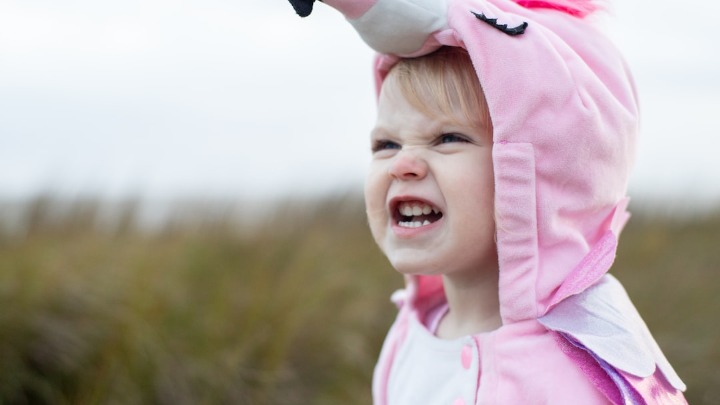When Your Toddler Hates You: Understanding and Coping with the Struggle
Contents
Being a parent is a challenging role that comes with its own set of difficulties. One of the most heart-wrenching experiences a parent can face is feeling like their toddler hates them. The bond between a parent and child is supposed to be unbreakable, and when things don’t go as planned, it can be a painful experience. It’s important to understand that this is a normal part of the developmental process and happens to many parents. In this blog post, we will explore why toddlers sometimes appear to “hate” their parents and provide some helpful tips on how to cope with this struggle. We will also discuss the importance of communication, patience, and self-care in maintaining a healthy relationship with your toddler. So if you’re overwhelmed and unsure how to handle this situation, this post is for you.
Understanding the Struggle
Parenting is a tough job, and it can be even harder when your toddler seems to hate you. It’s a common feeling among parents and can leave you frustrated, sad, and angry. But it’s important to remember that this is a normal part of your toddler’s development. Toddlers are learning to assert their independence and navigate their emotions, and they don’t always know how to express themselves healthily. When they feel overwhelmed, they may lash out at the people closest to them, including you.
It’s also important to recognize that your toddler doesn’t hate you. They may be upset with you, but their love for you is still there. As a parent, it’s your job to help them learn how to manage their emotions and communicate their needs more positively. This can be a difficult process, but with patience and understanding, you can strengthen your relationship with your child and help them develop the skills they need to thrive. This post explores strategies for coping with this struggle and fostering a healthy, loving relationship with your toddler.
Why Your Toddler May Seem to Hate You
It’s a common and distressing issue that many parents face, but it’s important to remember that your toddler doesn’t hate you. Toddlers are still learning to regulate their emotions and communicate effectively, so their behavior toward you can often result from frustration or confusion.
Your toddler may seem to hate you because they are going through a developmental stage where they assert their independence. This can manifest in challenging behavior, resistance to your requests, or outright refusal to do what you ask them to do. It’s important to remember that this is a normal part of their development, not a reflection of your parenting skills or your relationship with your child.
Another reason your toddler may seem to hate you is that they are experiencing big emotions that they don’t yet know how to express. Toddlers don’t have the same level of emotional regulation as older children or adults, so they may lash out physically or verbally when feeling overwhelmed. It’s important to stay calm and patient in these situations, as your toddler is looking to you for guidance on managing their emotions.
Finally, it’s important to recognize that your toddler may be struggling with other issues you might not know about. This could be anything from illness or discomfort to anxiety or stress. If your toddler’s behavior towards you is consistently negative, it’s worth talking to your healthcare provider or a child development specialist to rule out any underlying issues.
Common Triggers for Toddler Tantrums and Meltdowns
If you’re a parent or a toddler’s caregiver, you know how challenging it can be when your little one throws a tantrum or meltdown. Sometimes it can seem like they hate you, but it’s important to remember that they’re incapable of understanding and expressing their emotions like adults do. Therefore, it’s crucial to understand the common triggers for toddler tantrums and meltdowns.
One of the most common triggers is when toddlers are tired or hungry. They may not have the vocabulary to express their needs; instead, they become irritable and fussy. Another trigger can be a change in routine or environment, such as starting preschool or moving to a new house. Toddlers thrive on routine and consistency so any changes can overwhelm them.
Toddlers may also throw tantrums when they’re feeling frustrated or powerless. They’re learning new skills and abilities, but they may not always be able to accomplish what they want to do, leading to a sense of helplessness and anger. Finally, toddlers may throw tantrums when seeking attention or trying to assert independence. They want to be heard, seen and acknowledged but may not know how to express themselves positively.
Understanding these common triggers can help you anticipate and prevent tantrums and meltdowns before they start. You can also develop coping strategies to help your toddler manage their emotions and feelings more positively. Remember, as a caregiver, your role is to guide and support your toddler through these challenging moments, even if it feels like they hate you. You can help your toddler grow and develop into a happy, healthy, and emotionally intelligent adult with patience, empathy, and understanding.
Responding with Empathy
Dealing with a toddler who appears to hate you can be extremely challenging as a parent. This can be an incredibly difficult and emotional experience, but it’s important to remember that your child’s behavior does not reflect your parenting skills. Responding with empathy is crucial in these situations, as it helps your child feel heard and understood.
When your toddler is upset or angry, it’s important to validate their feelings and let them know that you understand where they’re coming from. Even if you don’t agree with their behavior, it’s important to acknowledge their emotions and respond with kindness and compassion.
One way to do this is by using reflective listening, which involves repeating back to your child what they’ve said to you. For example, if your child says, “I hate you,” you could respond by saying, “It sounds like you’re feeling really angry right now.” This approach shows your child that you’re listening and that their feelings matter.
It’s also important to model empathy for your child. When your child sees you responding with kindness and understanding, they learn to do the same. This can help them develop important social and emotional skills that serve them well.
Remember, responding with empathy won’t solve all the challenges of parenting a toddler who hates you. Still, it can help you build a stronger relationship with your child and create a more positive home environment.
Coping Strategies for Parents: Self-Care and Patience
Parenting is one of the most rewarding yet challenging jobs in the world. When your toddler hates you, it can feel like the end of the world. However, it’s important to remember that this phase will eventually pass. In the meantime, taking care of yourself and practicing patience is important.
Self-care is crucial during this time. It’s easy to put your needs on the back burner when dealing with a difficult toddler, but it’s important to make time for yourself. This can be as simple as taking a hot bath, reading a book, or walking. Whatever it is that makes you feel relaxed and rejuvenated, make time for it. This will help you feel more patient and better equipped to handle parenting challenges.
Patience is also key when dealing with a toddler struggling with their emotions. It can be frustrating when your child throws a tantrum or refuses to listen, but remaining calm and patient is important. Remember that your child is still learning to manage their emotions, and it’s your job as a parent to help them navigate these challenges.
Another coping strategy is seeking support from other parents or professionals. Joining a parenting group or speaking with a therapist can provide a safe space to share your feelings and gain valuable insights and advice. Remember, you are not alone; seeking support is a sign of strength, not weakness. With patience, self-care, and support, you can cope with the struggles of parenting a toddler who hates you.
Building a Strong and Loving Connection with Your Toddler
As a parent, building a strong and loving connection with your toddler is one of the most important things you can do. When your toddler feels loved and valued by you, it can help to strengthen your bond and reduce the likelihood of conflicts or negative behaviors. Here are some tips to help you build a strong and loving connection with your toddler:
- Spend quality time together: Set aside time each day to play, read, or do other fun activities with your toddler. This can help to strengthen your bond and create positive memories together.
- Listen to your toddler: When your toddler wants to talk or share something with you, take the time to listen. This can help them feel heard and valued, strengthening your connection.
- Respond with empathy: Respond with empathy and understanding when your toddler is upset or struggling. This can help them feel supported and loved, even when struggling.
- Show physical affection: Hugging, kissing, and cuddling your toddler can help to build a strong connection and reinforce your love for them.
- Consistency is key to building a strong and loving connection with your toddler. Stick to routines, follow through on promises, and show up for them every day.
Building a strong and loving connection with your toddler can help reduce the likelihood of conflict and create a positive and supportive relationship that will last a lifetime.
Power of Positive Discipline: Setting Limits with Love
Coping with a toddler who seems to hate you can be extremely challenging. However, as a parent, you must embrace positive discipline and set limits with love. Positive discipline is about teaching and guiding your child positively and constructively rather than punishing them for their negative behavior. It’s important to understand that toddlers are still learning and growing, and they need your guidance to develop the necessary skills to become well-adjusted adults.
Start by setting clear rules and boundaries and explaining them to your child in a way that they can understand. Consistency is key, so follow through with consequences when rules are broken. However, ensuring the consequences are age-appropriate and not overly harsh is important. Instead of punishing your child, redirect their behavior to a more positive activity. For example, if your child is throwing a tantrum, gently take them to a quiet corner and distract them with a toy or book.
When setting limits, it’s essential to do so with love and empathy. Ensure your child knows you love them and want to help them make good choices. Avoid using negative language, such as “bad” or “naughty,” as this can damage their self-esteem. Instead, use positive affirmations and praise them when they make good choices. Remember, setting limits with love is not about being permissive or indulgent but rather about guiding your child toward positive behavior. You can help your toddler develop into a well-behaved and happy child with patience, consistency, and much love.
Understanding Your Child’s Developmental Needs
Understanding your child’s developmental needs is important when dealing with a toddler who hates you. Toddlers are undergoing many changes at this age, which can be overwhelming. They may be struggling with communication, independence, and understanding their emotions. All of these factors can contribute to their behavior towards you.
One of the main things to remember is that toddlers are learning to assert their independence and may push boundaries to see what they can get away with. This doesn’t mean they hate you; it’s part of their development. Setting boundaries and being consistent with consequences when they misbehave is important. This will help them learn what is acceptable behavior and what isn’t.
Toddlers also struggle with communicating their needs and emotions effectively. When they can’t express themselves, they may act out in frustration. It’s important to be patient and understand what they are trying to communicate. Encouraging them to use words and teaching them new ones can help them express themselves better.
Finally, it’s important to remember that toddlers have big emotions and don’t yet have the tools to regulate them. When they are upset or frustrated, they may lash out. It’s important to validate their feelings and help them learn healthy coping methods. This can be done through modeling positive behavior, teaching breathing techniques, and creating a safe and calming environment for them.
Understanding your toddler’s developmental needs can help you navigate their behavior when they seem to hate you. Remember to set boundaries, be patient and understanding, and teach them healthy ways to cope with their big emotions.
Finding Support and Resources
Parenting a toddler who seems to hate you can be an isolating and heartbreaking experience. It’s important to know that you’re not alone and that resources and support are available to help you cope.
One of the first steps is to talk to your pediatrician. They can rule out any medical issues contributing to your child’s behavior and offer advice and referrals for therapists or other professionals who can help.
There are also many support groups and online forums where you can connect with other parents going through similar struggles. These communities can provide a safe space to share your experiences, ask for advice, and receive empathy and support.
Many books and resources can help you better understand your toddler’s behavior and how to manage it. Some popular options include “The Whole-Brain Child” by Daniel J. Siegel and Tina Payne Bryson, “How to Talk So Kids Will Listen & Listen So Kids Will Talk” by Adele Faber and Elaine Mazlish, and “No-Drama Discipline” also by Daniel J. Siegel and Tina Payne Bryson.
Remember, seeking help and support is a sign of strength, not weakness. You owe it to yourself and your child to reach out and find the resources and support you need to navigate this challenging time.
Parenting a toddler is one of the most challenging yet rewarding experiences ever. Toddlers are full of energy and curiosity and can be a handful sometimes. It’s common for parents to feel overwhelmed, frustrated, and even like their toddler hates them. However, it’s important to remember that your toddler is going through a phase of development where they are learning how to express themselves and navigate the world around them.
Providing a safe and loving environment for your toddler is important as a parent. This means setting boundaries, being consistent with discipline, and offering appropriate positive reinforcement. It’s also important to take care of yourself physically and emotionally. Parenting can be exhausting and stressful, so take breaks when necessary and seek support from family, friends, or even a therapist if needed.
Remember that every child is different, and there is no one-size-fits-all approach to parenting. It’s okay to make mistakes and learn as you go. The most important thing is to show love and patience towards your toddler, even when it feels like they hate you. With time and effort, you can navigate the challenges of parenting a toddler and build a strong, loving relationship with your child.
We hope you found our article on coping with a toddler who hates you helpful. Parenting can be incredibly challenging, and it’s normal to feel overwhelmed and frustrated sometimes. Remember that your toddler’s behavior does not reflect your parenting skills or your relationship with them. With patience, understanding, and a few coping strategies, you can navigate this challenging phase and overcome the other side with a stronger relationship with your child. Keep up the good work, and always remember that you’re doing your best!







